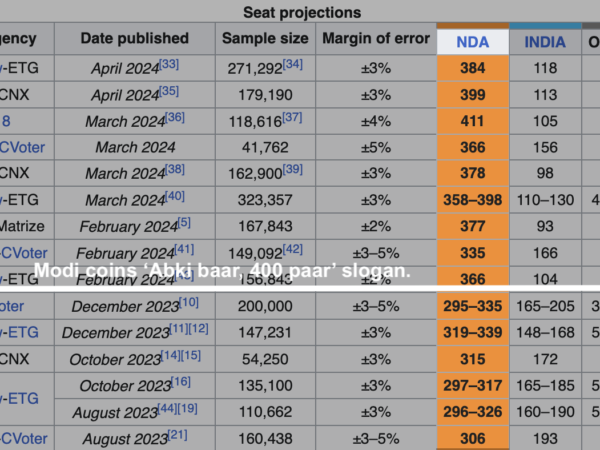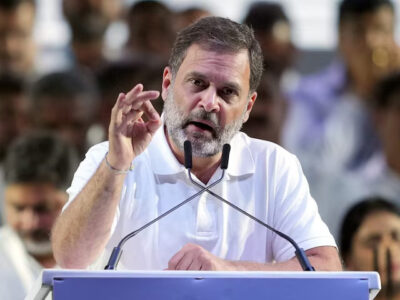
Please read this extremely well-researched and balanced article.
To be honest, it is Nirmala Tai who should be reading this. No prizes for guessing if she will though. She already knows everything, and she already is the smartest person in the country (bar her mentor), and she’s already done whatever she could, and in any case, she is well-off and does not use either onions or petrol or whatever the fuck her arguments and excuses are for doing everything else but her actual job. Good luck getting her to understand what this article is saying.
I’ll save her some time by summarising the answer to the silly and condescending question she posed to Indian industry leaders. Here it is: The common Indian citizen has no money and no hope for future income (through fresh or continued and stable employment or business or rentals or returns on long-term investment) in the current times, and so, will not spend. That’s the fuck up. Solve for it, and everything else will work out. In fact, if you just get on and do the job you’re hired for, you won’t need to wonder why your (and your Supreme Leader’s) bungling is screwing things up for others who are trying to do theirs.
So, what will help get the industry to invest? For all the complicated reasoning, the answer is simple: jobs + hope.
But it is the industry that provides the jobs. That means the government can only provide the other part of the equation: hope. And where will hope come from? Peace, social harmony, preservation of liberties, conservation of democratic institutions, better governance, lesser corruption, more transparency, and accountability from the powers that be.
Now, what was Rahul Gandhi’s Bharat Jodo Yatra about again?















![Mr Baba: 'Would you like to take off the backpack now that you've been downstairs for like 30 minutes?'
Ms Kym-Kym: 'I like it like this. You should try it. It's very comfortable.'
Mr Baba: [Pulling on his backpack] 'Hmmm, you're right. That's rather snug.'
Ms Kym-Kym: 'Twinning! Yay!'
#LuckiestManAlive #BearFamily](https://scontent-lax3-1.cdninstagram.com/v/t51.29350-15/416920031_3373151642830342_6696851954454537274_n.webp?stp=dst-jpg&_nc_cat=105&ccb=1-7&_nc_sid=18de74&_nc_ohc=ZMLmjPdSAEUAX8nnJex&_nc_ht=scontent-lax3-1.cdninstagram.com&edm=ANo9K5cEAAAA&oh=00_AfB0olvUVmnenPKd2wCllMDehg5gzDgAbc4BDsGLqIm6pA&oe=65BA4561)

![Kym: 'Mr Baba, can I tell you something wierd? You can actually get tired from doing nothing!!'
Me: 'It is called boredom.'
Kym: 'Noooo. I mean, like physically tired.'
Me: 'One can get tired and sleepy due to boredom. I remember reading about it somewhere. Let's find out.'
[Some Googling later]
Me: 'It says here that "A new paper published in the journal Nature Communications finds that a part of the brain that is associated with motivation and pleasure - the nucleus accumbens - also can produce sleep. The new findings may explain why we have the tendency to fall asleep in the absence of motivating stimuli, i.e., when bored." Isnt it interesting?'
Kym: 'I already knew that. Why do you need to research things we already know?'
Me: [Finding a subject worth talking about now]: ' Ah well, that's what we'll talk of tomorrow on your morning run. It's very interesting the way science is done and our understanding of the universe is expanded.'
Kym: 'Can we talk of unicorns instead?'
Me: 'Sure. How do you know they exist? That's an interesting question too that you can use the scientific method to answer.'
Kym: 'Do they have to exist for us to talk about them? We can just pretend they do for an hour and have fun.'
Me: [Laughing] 'Yes, sure. We can do that too.'
#BabaBabyConversations #BearFamily #KymAndI](https://scontent-lax3-1.cdninstagram.com/v/t51.29350-15/416410840_383105434396466_2267910263456009774_n.webp?stp=dst-jpg&_nc_cat=104&ccb=1-7&_nc_sid=18de74&_nc_ohc=LIozs445JFcAX_48wGC&_nc_ht=scontent-lax3-1.cdninstagram.com&edm=ANo9K5cEAAAA&oh=00_AfDQ2qbb0yO_wUmLj_L0ZxF61eDdwlIN-vyrd8GZe_pBMQ&oe=65BAFA57)










